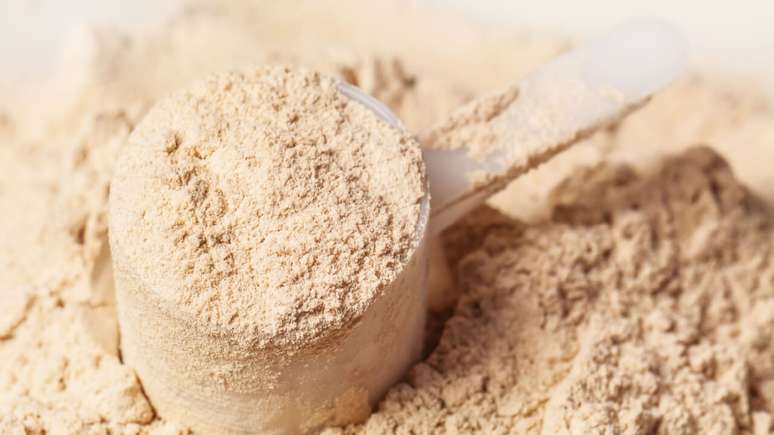Nutritionist clarifications show that, if used correctly, the milk serum protein does not damage the liver
The milk serum protein, a supplement obtained from the milk protein, is widely used to achieve the daily objective of taking protein. Its main benefits include the increase in muscle mass, reduction of body fat and muscle recovery after training.
However, doubts still arise about its liver impact: can serum proteins damage this organ?
The milk serum protein does not damage the liver
“We have no scientific tests that note that the use of the serum protein can be harmful to the liver. However, the excess of protein in food can overload the functioning of the liver and the kidneys. Therefore, consumption should be done under a professional guide”, explains Bruna Lima, nutritionist at the center specialized in the Oswaldo Cruz hospital, in an exclusive interview with sports life.
It also underlines that people with liver problems have no contraindication in the consumption of milk serum protein, strengthening the importance of the follow -up specialized for safe use.
The individual evaluation is essential
“Before starting integration, it is important for the person to look for a nutritionist to perform a complete evaluation, with biochemical tests and therefore find out what to integrate”, underlines Bruna.
The ideal amount of whey varies according to each person, considering if the individual is an amateur athlete, high performance or light practices or sporadic physical activity.
“The daily dose varies from each individual. There is no contraindication of the milk serum proteins. It can be used by a young person to an elderly person, but it is necessary to be aware of the people who already have some renal condition, because in this case the proteins must be adapted”, explains the nutritionist.
Supplements that can overload the liver
Bruna Lima warns that other types of integration can be more harmful to the liver than for the serum protein:
“Vitamin A, which can cause liver cirrhosis. Some vitamins of group B can also attack the liver. Vitamin and can cause hemorrhagic stroke (stroke) and vitamin C consumed at high doses can acidify urine. Therefore, the reinforcement that all supplement should have followed professional”, says.
Excess serum protein: side effects
Although it is not considered dangerous for the liver, the excess of whey can bring some discomfort:
“The excess serum protein will not cause serious damage to health, but can cause acne and gastrointestinal discomfort. Furthermore, this excess protein will be excreted by the body in the urine”, concludes Bruna Lima.
Source: Terra
Ben Stock is a lifestyle journalist and author at Gossipify. He writes about topics such as health, wellness, travel, food and home decor. He provides practical advice and inspiration to improve well-being, keeps readers up to date with latest lifestyle news and trends, known for his engaging writing style, in-depth analysis and unique perspectives.








